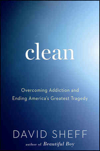
Clean: Overcoming Addiction and Ending America’s Greatest Tragedy
Journalist David Sheff’, “Clean: Overcoming Addiction and Ending America’s Greatest Tragedy”, which has been called “the most important book about addiction in a decade.”
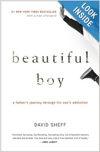
Beautiful Boy: A Father’s Journey Through His Son’s Addiction
Journalist David Sheff, in this follow-up to his bestselling “Beautiful Boy: A Father’s Journey Through His Son’s Addiction”. Sheff explores our country’s failed approach to the drug-abuse problem and suggests better ways to handle it. “Clean” is a must read for everyone who cares about the addiction crisis and how we might solve it.
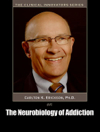
Neurobiology of Addiction A New Perspective Curriculum with DVD
Dr. Carlton Erickson, director of the Addiction Science Research and Education Center at the University of Texas, writes not only a “brain science 101” text, but helps explain how developments in neurobiology call for basic changes in the very ways that addiction professionals discuss, define, and treat chemical dependence.
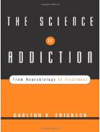
The Science of Addiction: From Neurobiology to Treatment
The Science of Addiction presents a comprehensive overview of the roles that brain function and genetics play in addiction. It explains in an easy-to-understand way changes in the terminology and characterization of addiction that are emerging based upon new neurobiological research.
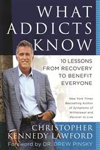
What Addicts Know
New York Times bestselling author Christopher Kennedy Lawford revisits the topic of addiction in his latest book, What Addicts Know, which provides an eye-opening explanation as to how our culture has become dependent on the instant gratification of gambling, drugs, alcohol, technology, and material possessions.
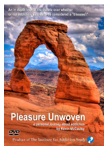
Pleasure Unwoven: An Explanation of the Brain Disease of Addiction (2010)
In Pleasure Unwoven, Kevin McCauley a pioneer in the field of addiction treatment becomes very creative in his portrayal of Addiction as a Disease. The craggy and beautiful trails of Utah’s Bryce Canyon National Park become a metaphor for the primitive midbrain while the plateaus of Zion national Park represent the brain’s frontal cortex. There are colored hoses and liquids to represent the brain chemicals glutamine and dopamine.
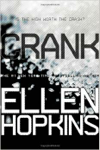
Crank: Life was good before I met the monster. After, life was great, At least for a little while.
This is a story about a monster. Not a dragon or a mythological beast, but a very real, very destructive monster–crystal meth–that takes hold of seventeen-year-old Kristina Snow and transforms her into her reckless alter-ego Bree. Based on her own daughter’s addiction to crystal meth, Ellen Hopkins’ novel-in-verse is a vivid, transfixing look into teenage drug use. Told in Kristina’s voice, it provides a realistic portrayal of the tortured logic of an addict.

Taking the Ferry Home
by Pam Conrad
Two 16-year-olds form a friendship–born of different social classes drawn together for the summer on a resort island. Binding them together are two addictive parents–one a recovered alcoholic, the other a chronic alcohol and drug abuser. And underneath Simone’s perfect tan, Ali discovers, is a not so perfect person.



